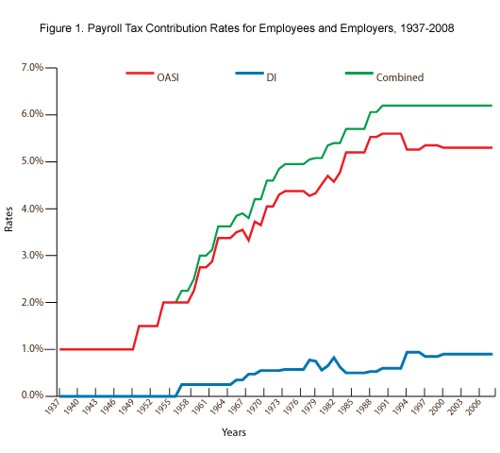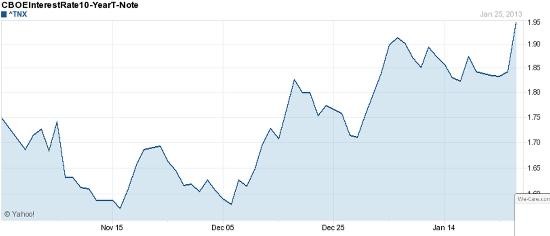Let’s stop investing our retirement funds in lethal weapons
Post on: 11 Июль, 2015 No Comment

Let’s stop investing our retirement funds in lethal weapons
Mutual funds, according to a recent Vanguard statement, are not “optimal agents to address social change .” I agree. But while a mutual fund may not be the best way to promote sound social policy, when trillions of dollars in mutual fund assets are managed without any social or environmental considerations, they can be a very effective way of promoting broad social harm.
Unlike other national tragedies fueled in part by investment decisions – the BP disaster immediately comes to mind – the Newtown massacre has prompted an important and overdue debate about the role of investment in our society. Your IRA is at the heart of that debate.
We’ve read about how the retirement funds of teachers and other public servants were used by Cerberus, a private equity fund, to create Freedom Group, the largest gun maker in the country. Freedom Group makes the assault weapon that was used to kill children and teachers. Unless you are a participant in a public pension fund, or a very wealthy individual, however, you are probably not invested in any of the private equity firms that own gun makers. But you are most likely invested in a mutual fund, and your fund may own gun stocks.
Vanguard’s statement was issued in response to the revelation that it is one of the largest owners of Smith & Wesson and Sturm, Ruger, the largest publicly traded gun manufacturers. Vanguard holds these stocks in passively managed index funds. This, of course, is no real revelation – it is the status quo, the result of a philosophy that treats investments as abstractions, divorced from real world impacts. But it should serve as a wake-up call for the millions of Americans invested in so-called ‘low cost’ index funds. What are the true costs of these investments?
Vanguard’s statement, which could have been issued by any large asset manager, contains two of the most common excuses offered for failing to address the social implications of investment decisions. Let’s take each in turn.
The first statement involves benchmarks. Vanguard is the inventor and largest manager of index funds – ‘passive’ funds designed to replicate benchmark indices. Smith & Wesson, Sturm, Ruger and ammunition maker Olin are members of the Russell 2000 and Russell 3000 indices. In essence, Vanguard claims that its hands are tied – to track an index, it must invest in all the stocks in that index. But is this true? Is it possible for an index manager to track a 3000 stock index with 2997 stocks?
Does a passive investment strategy relieve an asset manager of all moral responsibility? Do managers have an obligation to choose appropriate benchmarks that do not contain inherently destructive companies?
If an index strategy requires automatic investment in destructive companies – landmine manufacturers, human rights violators, gun-makers – then safeguards need to be put in place to allow passive investment while also protecting innocent third parties. Ultimately, this responsibility should rest with the firms that manage the benchmarks themselves. Generally, companies are selected for major market indices without any consideration of their social or environmental impacts. But what if Russell decided to assess the true value these companies contribute to society? What if Russell identified a set of corporate practices that pose unacceptable risks, and then chose to remove those companies from their indices? Every index manager in the world would divest overnight.
If there’s anything we’ve learned from the financial crisis, it is that even the most arcane financial decisions can have real-world impacts. Such is the case when you allocate billions of dollars to companies that make military-style assault weapons. We can no longer pretend that these decisions are morally neutral – they are not.
Standard-setting is not foreign to index management. Both the index managers and the stock exchanges set all sorts of financial and governance standards. The OMX Nordic Exchange actually has a standard to “investigate”, and presumably to ultimately delist, companies that have committed “serious or systematic violation of human rights or other ethical international norms ” including those that manufacture chemical weapons or land mines. They placed these standards under the heading “marketplaces with integrity.” After OMX’s acquisition by NASDAQ, it is unclear where those standards now stand. Some exchanges, including the Johannesburg Stock Exchange, require listed companies to produce sustainability reports. Dow Jones, MSCI and FTSE all maintain indices that include social and environmental standards.
Should investors be able to choose between both responsible and irresponsible indices? That depends on whether you believe there are real-world consequences for allocating capital to firms that are hurting people.
Vanguard’s second claim, drawn from its longstanding statement on social issues. is that “as a fiduciary” it is required to “maximize returns.” Whenever you hear that phrase, add three simple words: “at any cost.” Pure profit seeking should never be conflated with fiduciary duty. Fiduciaries are held to a higher standard.

The 19 th century ‘prudent man standard,’ for example, directs trustees to “observe how men of prudence, discretion and intelligence manage their own affairs.” When fiduciaries manage money for parents, they need to think like parents. It is self-evident that a prudent person would not use her own money to harm her children. It is both callous and misguided to suggest that fiduciaries are compelled to do so.
The long-term rationale for investing in gun manufacturers is the belief that society will not act to rein in the costs these companies impose on others. The largest asset managers in the world are backing a future that fails to address broad social harm. They have placed many billions of dollars of other people’s money on the laissez faire side of the scale, and they have done this despite a clear legal obligation to put their investors’ best interests first. We should therefore not be surprised to see our children inherit a passive democracy that is unable or unwilling to protect them.
I believe divestment of stocks in gun manufacturers is appropriate, but there is more that can be done. Beyond divestment, institutional investors – including mutual fund managers – should be using their clout to place this issue on the agenda of every board in the country. Directors should be asking whether their company’s products, services and political activities are contributing to this epidemic of violence, or standing in the way of reform. Many companies, including those that manage theme parks, operate stores in large shopping centers, or are closely associated with children, could benefit from strict gun control. These companies should stand up and say so. Video game companies that partner with gun makers to help market assault weapons should be asked to review these practices. Every retailer that sells semiautomatic weapons should be asked to take them off the shelves. In addition, as we wait for stricter gun control laws, there is no reason why companies that sell guns cannot impose strict rules of their own.
Money managers, unlike individual investors, have a legal obligation to think about the welfare of others. When trillions of dollars of capital unite against gun violence, companies and policymakers will listen. Institutional investors are not prevented by fiduciary duty from taking these actions; rather, fiduciary duty compels them to do so.
Let’s apply a little common sense. We don’t need to finance violence in our communities in order to provide for our retirements. Now is the time for individuals to speak up and demand an approach to investment that is appropriate for children.
PHOTO: Crosses are seen at a memorial along the side of the road on the day the Sandy Hook School children will begin to attend classes in Monroe, Connecticut, January 3, 2013. REUTERS/Carlo Allegri














